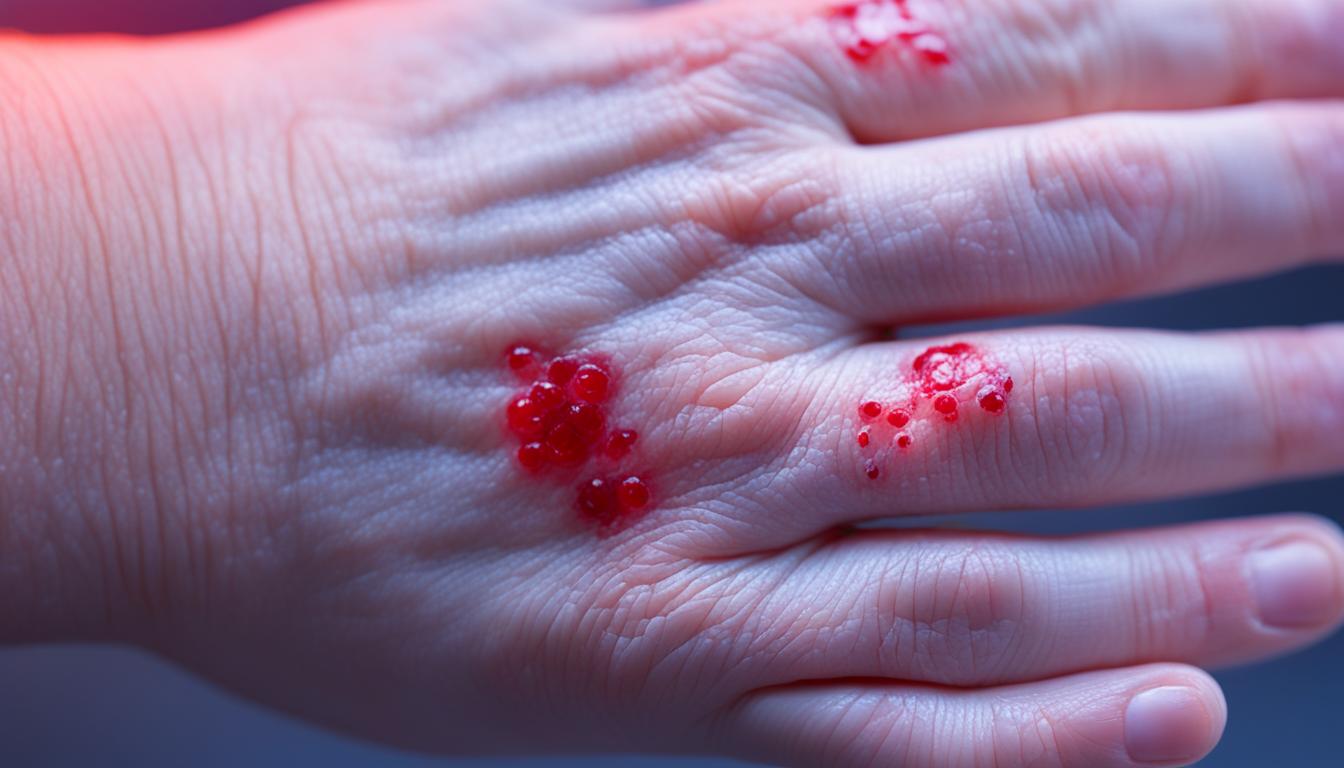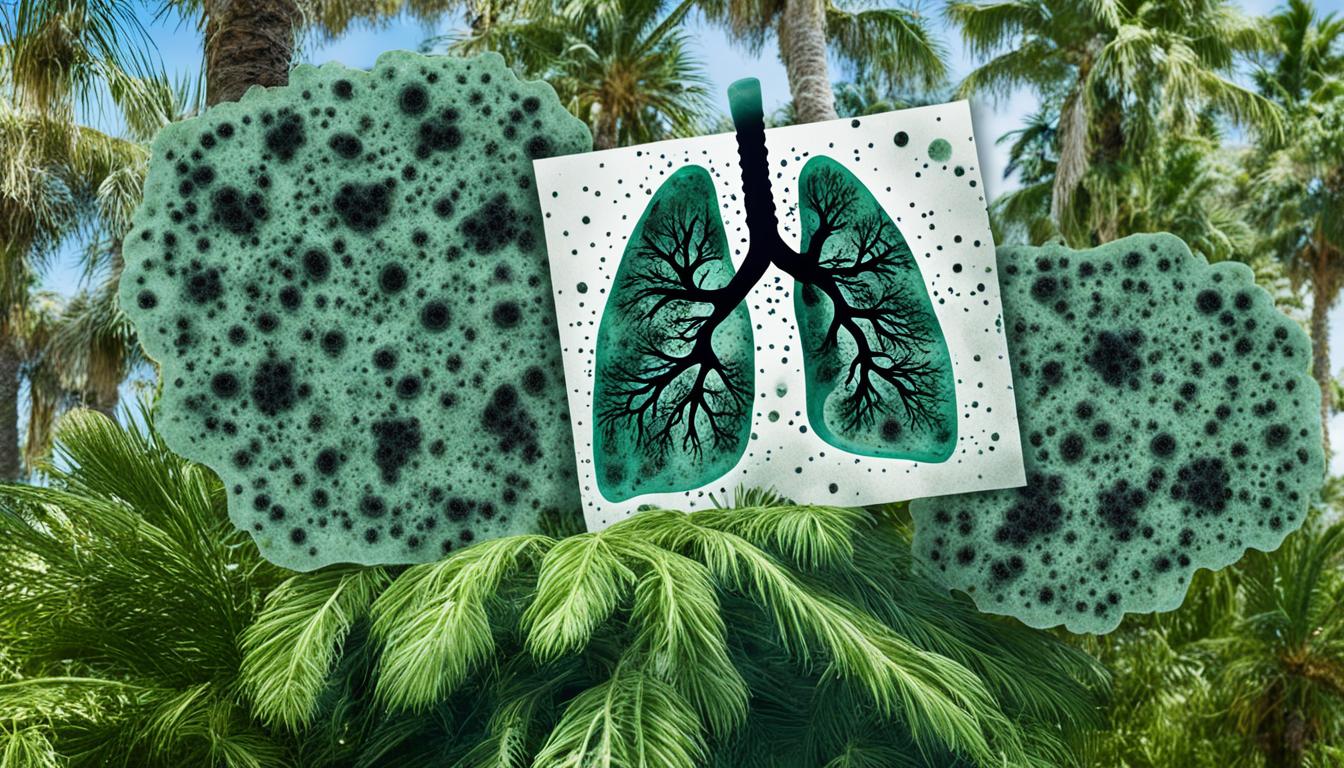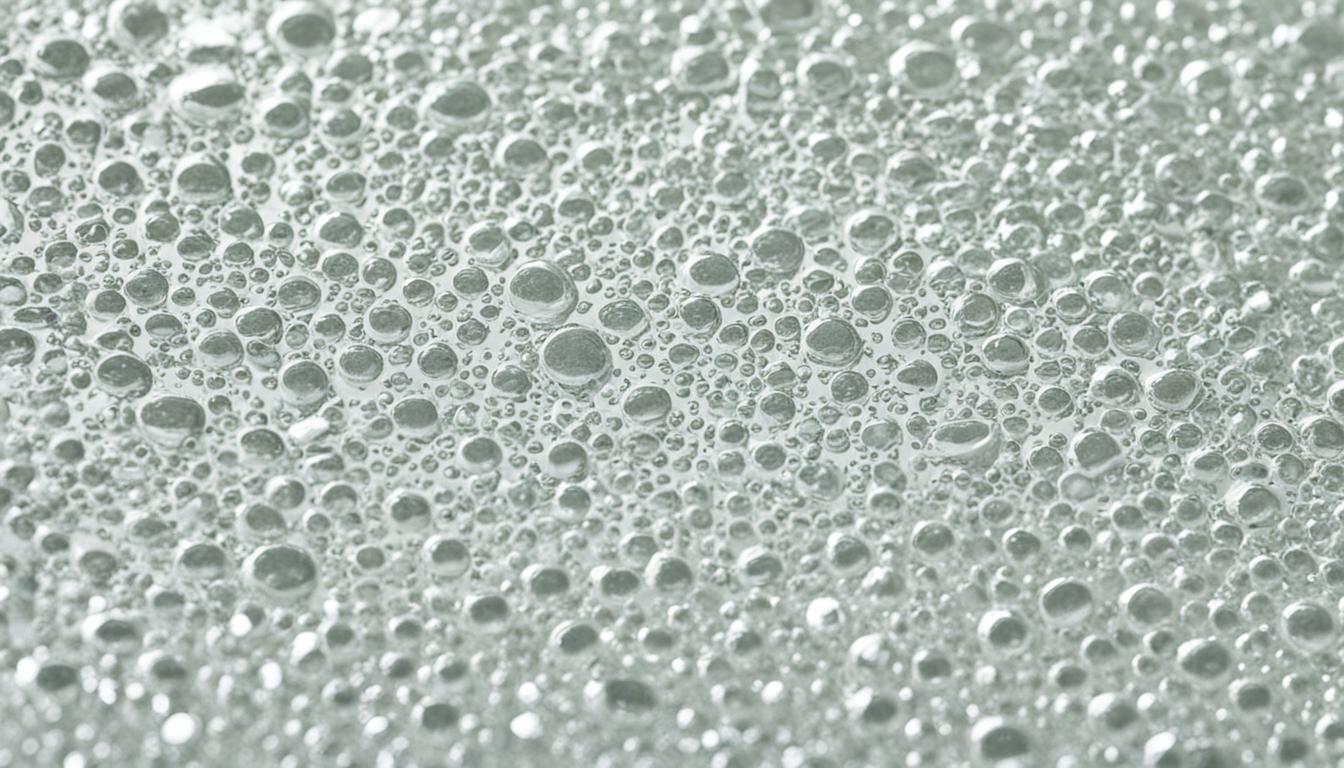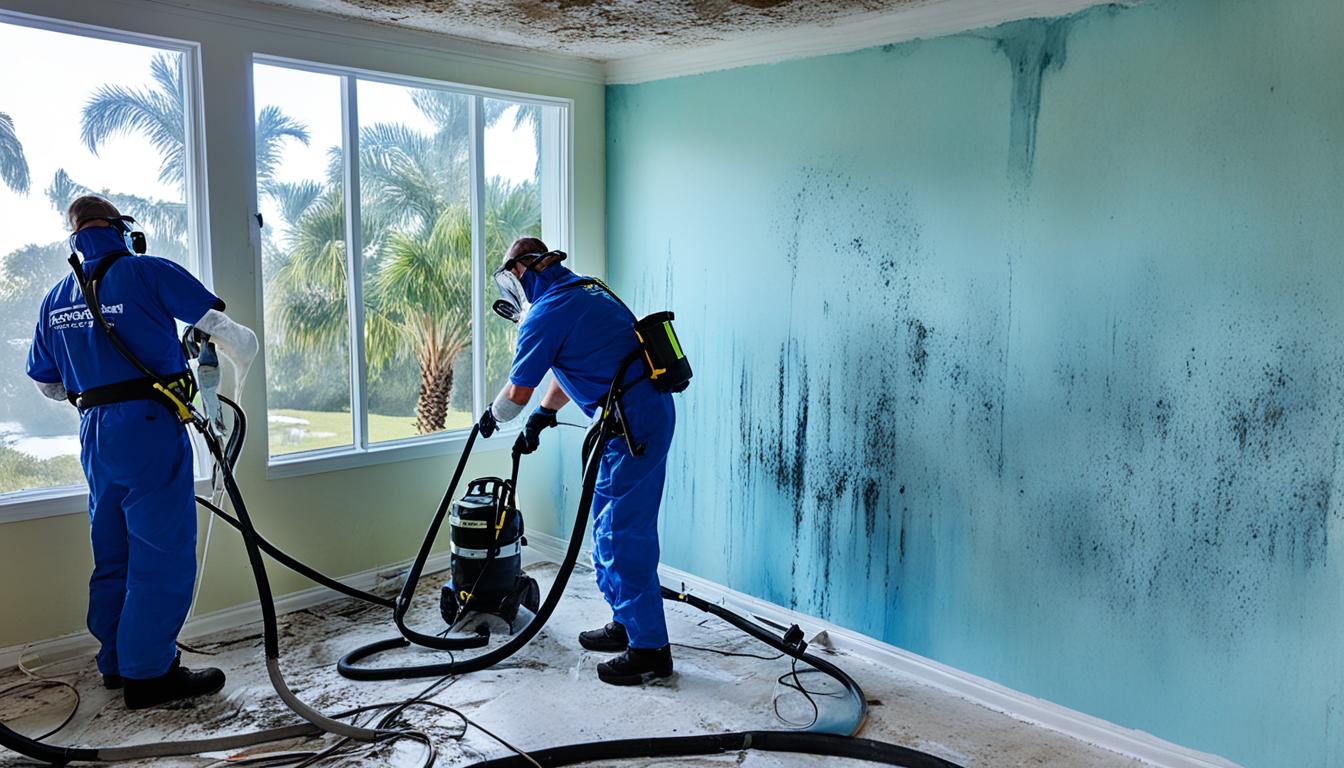
Florida Mold Exposure Symptoms – Health Alert
Florida residents need to be aware of the symptoms of mold exposure and the potential health risks associated with it. Mold-related illnesses can have serious consequences, affecting respiratory health, skin conditions, and overall well-being. Recognizing these symptoms is crucial for taking appropriate action and ensuring the safety of individuals and families.
Mold thrives in warm and humid environments, making Florida an ideal breeding ground. As a result, residents are at a higher risk of mold exposure compared to other regions. To protect yourself and your loved ones, it is essential to understand the common symptoms associated with mold exposure and seek professional assistance if needed.
Key Takeaways:
- Florida residents should be aware of the symptoms of mold exposure to protect their health.
- Mold-related illnesses can lead to respiratory issues, skin problems, and other health complications.
- Recognizing the signs of mold exposure is crucial for taking appropriate action and seeking professional assistance.
- Mold thrives in warm and humid environments, making Florida prone to mold growth.
- By understanding the symptoms and taking preventive measures, individuals can maintain a healthier living environment.
Common Symptoms of Mold Exposure in Florida
Exposure to mold in Florida can lead to a variety of symptoms that should not be ignored. It is important to be aware of these symptoms and take appropriate action to safeguard your health. In this section, we will explore the common symptoms experienced by individuals exposed to mold in Florida.
Respiratory Issues
One of the most common symptoms of mold exposure is respiratory problems. Mold spores can be inhaled, triggering allergic reactions or respiratory conditions such as asthma. If you experience persistent coughing, wheezing, shortness of breath, or nasal congestion, it may be a sign of mold-related respiratory issues.
Allergic Reactions
Mold exposure can also cause allergic reactions in some individuals. These reactions can manifest as itchy or watery eyes, sneezing, runny nose, and skin rashes. If you notice these symptoms, especially in specific environments or areas of your home, it could indicate a mold problem.
Skin Problems
Some individuals may develop skin problems as a result of mold exposure. These can include rashes, itching, redness, or other dermatological issues. If you notice any unusual skin reactions that cannot be attributed to other causes, mold exposure may be a potential factor.
Headaches and Fatigue
Exposure to mold can lead to chronic headaches and persistent fatigue. If you frequently experience unexplained headaches or feel tired even after getting sufficient rest, it is essential to consider mold exposure as a possible cause.
Digestive Issues
In certain cases, mold exposure can lead to digestive problems such as nausea, diarrhea, or stomach pain. If you consistently experience unexplained gastrointestinal issues, mold exposure should be considered as a potential factor.
It is crucial to remember that these symptoms may vary from person to person, and some individuals may be more susceptible than others. If you suspect mold exposure, it is recommended to consult a medical professional and seek assistance from experienced mold remediation experts to identify and address the underlying cause.
| Symptom | Description |
|---|---|
| Respiratory Issues | Coughing, wheezing, shortness of breath, nasal congestion |
| Allergic Reactions | Itchy or watery eyes, sneezing, runny nose, skin rashes |
| Skin Problems | Rashes, itching, redness |
| Headaches and Fatigue | Chronic headaches, persistent fatigue |
| Digestive Issues | Nausea, diarrhea, stomach pain |

Conclusion
In conclusion, recognizing and addressing mold exposure symptoms in Florida is of utmost importance to safeguard the health and well-being of residents. Through this article, we have explored the various symptoms that individuals may experience when exposed to mold in Florida. From respiratory issues such as coughing and wheezing to skin problems like rashes and itching, it is essential to pay attention to these signs and take appropriate action.
Professional mold assessments play a vital role in identifying the presence of mold in homes and buildings, enabling timely intervention and prevention of further health complications. Investing in regular assessments can help Florida residents detect mold growth at an early stage, mitigating potential risks and reducing the chances of mold-related illnesses.
Furthermore, implementing effective prevention measures is crucial in minimizing the likelihood of mold growth. Adequate ventilation, humidity control, and prompt water damage restoration are essential steps in preventing mold infestations. By addressing moisture issues promptly and maintaining proper indoor air quality, individuals can significantly reduce the risk of mold-related health problems.
In cases where mold has already infiltrated a property, professional mold remediation services should be sought. Trained experts can safely remove mold and restore the affected areas, ensuring a clean and healthy environment for occupants. It is crucial to engage qualified professionals who adhere to industry standards and utilize appropriate techniques and equipment for effective mold remediation.




